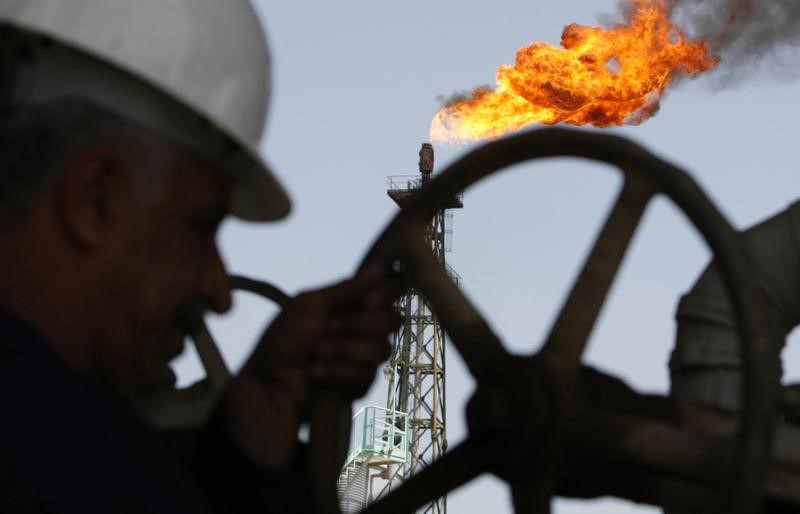Investing.com - Trade wars, slowing global growth and uncertainty over how quickly Venezuelan sanctions will bite are all coming together to hobble oil's rebound.
New York-traded West Texas Intermediate crude settled modestly higher on Friday but lost almost 5% on the week. London's Brent oil also rose on the day and fell on the week as the U.S. and China missed an opportunity to hold a summit to settle their trade war before a March 1 deadline.
Struggling euro zone economies, the slow-burn crisis in Venezuela and a volatile U.S. rig count were other factors that dented the outlook for oil.
WTI settled up 8 cents, or 0.2%, on the day at $52.72 per barrel. For the week, it fell 4.6%, its steepest weekly decline year-to-date, despite scaling November highs of $55.75 earlier in the week.
Brent, the global oil benchmark, was up 40 cents, or 0.7, at $62.03 per barrel by 3:25 PM ET (20:35 GMT). For the week, it was down 1.2%, after scaling 2019 highs of $63.63 earlier in the week.
The weekly reading on the U.S. oil rig count published by industry firm Baker Hughes showed a rise of 7 units to 854. Last week, the rig count dropped by 14, taking the count to a nine-month low of 847. Analysts said rig additions could quickly multiply if WTI prices stayed not far from $55 a barrel.
Crude prices came under renewed pressure this week after U.S. President Donald Trump said there would be no talks between him and Chinese President Xi Jinping before the deadline for a trade deal on March 1, raising new concerns about trade tensions between the world’s two biggest economies. Last week, Trump suggested that he would sit with Xi in late February, but on Thursday he ruled out such a meeting.
Lower growth forecasts by the European Union from earlier this week had heightened fears of a global economic slowdown.
In Venezuela's case, two weeks after opposition leader Juan Guaido declared himself interim president in defiance of sitting leader Nicolas Maduro, the standoff between the two has settled into a kind of stasis. While dozens of countries have recognized Guaido, Maduro continues to control the Venezuelan state apparatus, including the military.
"For now, the competing presidents appear to be mustering allies and trying to determine their next moves, and a prolonged stalemate is likely," New York-based consultancy Energy Intelligence said in its weekly note.
The stalemate also means the sanctions imposed by the Trump administration on the Maduro-controlled PDVSA oil company have had limited impact on crude prices so far.
Trump is counting on Saudi Arabia’s help to fill any oil supply gap caused by the sanctions on PDVSA while trying to prevent Saudi-controlled Organization of Petroleum Exporting Countries from formalizing a pact with Russia that would lift crude prices.
A bipartisan group of U.S. senators have put together a bill for the Justice Department to sue members of OPEC for antitrust violations if the cartel tries to formalize its oil cooperation pact with Russia.
At the same time, refiners on the U.S. Gulf Coast, squeezed by the absence of Venezuelan oil, have been told by White House officials not to expect any crude release from the Strategic Petroleum Reserve. Citing an administration source, energy reporting service Platts reported Thursday that officials are "certain" the Saudis will boost crude exports to the U.S. in coming weeks.
What makes the U.S. position remarkable, Platts pointed out, is that Saudi officials have indicated no plans of making up for any shortfall in Venezuelan supply, as the OPEC cartel under their control has been busily cutting output to boost prices.
